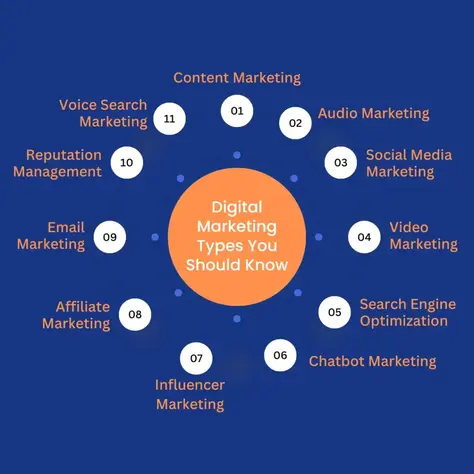Table of Contents
What Is Digital Marketing?
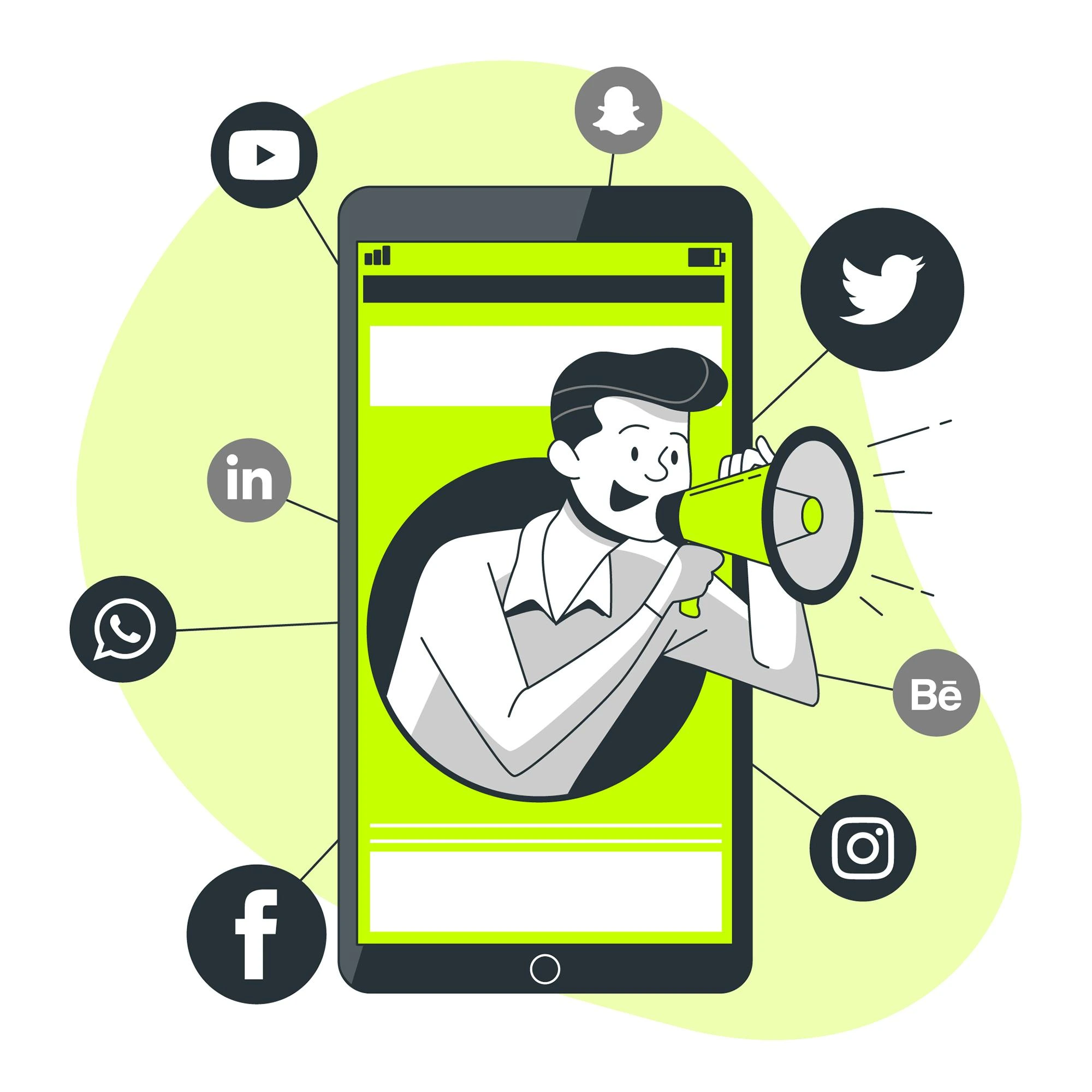
Digital marketing refers to the use of the internet and digital channels to promote products, services, or brands to a targeted audience. It includes everything from types of digital marketing such as search engine optimization (SEO) and social media to email campaigns and online advertising.
At its core, digital marketing is about connecting with people where they spend most of their time—online. Whether it’s through websites, mobile apps, social platforms, or search engines, it gives businesses the tools to reach, engage, and convert leads into loyal customers.
If you want to boost your business growth and digital presence, check out our digital marketing services designed to deliver real results.
Why It Matters Today
In today’s digital-first world, having an online presence is no longer optional—it’s essential. People research products on Google, follow brands on Instagram, and open promotional emails daily. So if you’re not marketing online, you’re missing out on major growth opportunities.
From small businesses to global companies, everyone is tapping into different types of digital marketing to stay relevant and competitive.
Here’s why it’s become a game-changer:
- It offers real-time results and tracking
- It helps you target specific audiences
- It’s often more cost-effective than traditional ads
- It’s flexible—you can run small campaigns or massive global ones
Why Understanding the Types of Digital Marketing Matters
Make Smarter Strategy Decisions
Knowing the types of digital marketing isn’t just marketing theory—it’s how you choose the right tools to grow your business. Every business is different. What works for an eCommerce brand might not work for a consulting firm. That’s why understanding the categories of digital marketing helps you match the right method to your business goals.
“It’s not about having the right opportunities. It’s about handling the opportunities right.”
– Mark Hunter
For example:
- A local restaurant might benefit more from social media marketing and local SEO
- A SaaS company might rely heavily on content marketing and email campaigns
Without clarity, you might invest in a channel that eats your budget and delivers little return
Avoid Wasting Money on the Wrong Channels
Digital marketing is measurable—but only if you’re using the right type of digital marketing for your audience and goals. Jumping blindly into paid ads or influencer campaigns without strategy can lead to poor ROI and frustration.
According to HubSpot, businesses that prioritize blogging are 13x more likely to see a positive ROI—but that only works if content fits their audience.
Understanding the various forms of digital marketing—like SEO, PPC, and affiliate marketing—helps you:
- Spend your budget more wisely
- Reach the right people on the right platforms
- Build long-term growth, not just short-term clicks
It’s Not One-Size-Fits-All
Whether you’re a startup, a freelancer, or a large corporation, you’ll likely need to use a mix of types of internet marketing to get results. Think of it like a toolbox—you choose different tools depending on the job.
As we move forward, you’ll learn how each digital marketing method works, and which one could be a good fit for your business.
Search Engine Optimization (SEO)
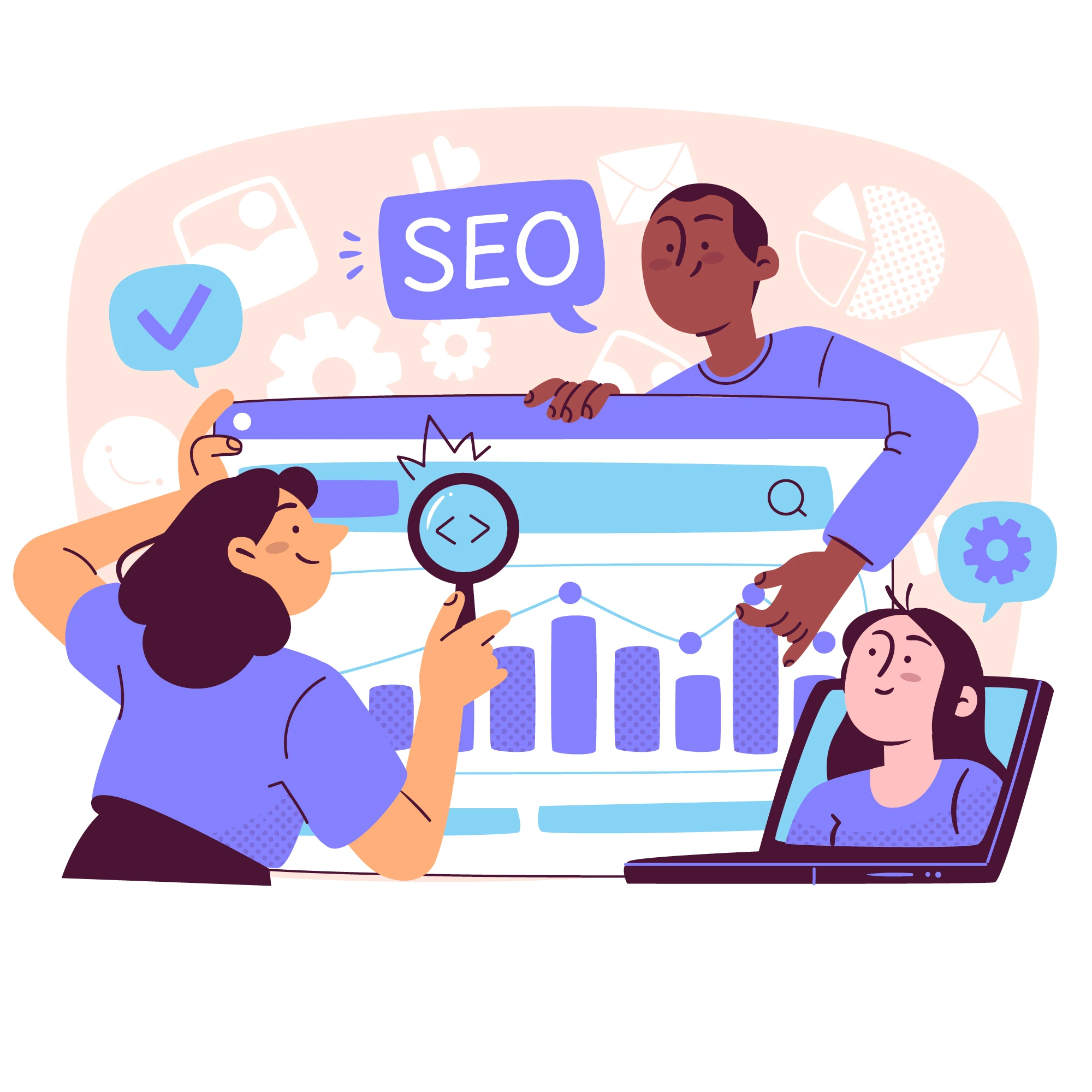
Search Engine Optimization (SEO) is the practice of improving your website’s visibility in search engine results like Google, Bing, and Yahoo. It’s one of the many types of digital marketing that helps your pages rank higher so more people can find your business organically—without paying for ads
SEO focuses on optimizing:
- Website content (blogs, landing pages)
- Technical elements (site speed, mobile-friendliness)
- Off-page signals (backlinks, social shares)
“Google only loves you when everyone else loves you first.”
– Wendy Piersall
This is one of the most popular types of internet marketing because it drives long-term, sustainable traffic.
Organic Traffic and Long-Term Impact
SEO isn’t a quick fix—but it’s one of the most cost-effective digital marketing methods in the long run. Unlike paid ads, where traffic stops the moment your budget runs out, SEO keeps delivering value over time.
Why SEO Matters:
- 68% of online experiences begin with a search engine (BrightEdge)
- SEO leads have a 14.6% close rate, compared to only 1.7% for outbound leads (Search Engine Journal)
- It builds credibility and trust with your audience
Sub-Types of SEO (Bonus Insight)
To understand this category better, here are a few sub-types of SEO:
- On-Page SEO – Optimizing page content and keywords
- Off-Page SEO – Getting backlinks and brand mentions
- Technical SEO – Fixing site speed, structure, and mobile usability
- Local SEO – Optimizing for “near me” searches and local visibility
When done right, SEO turns your website into a lead-generating machine—one that works 24/7.
For small businesses, local SEO is one of the most effective types of digital marketing. If you’re looking to boost your organic traffic, explore our SEO services designed to help you rank higher and grow faster.
Pay-Per-Click Advertising (PPC)
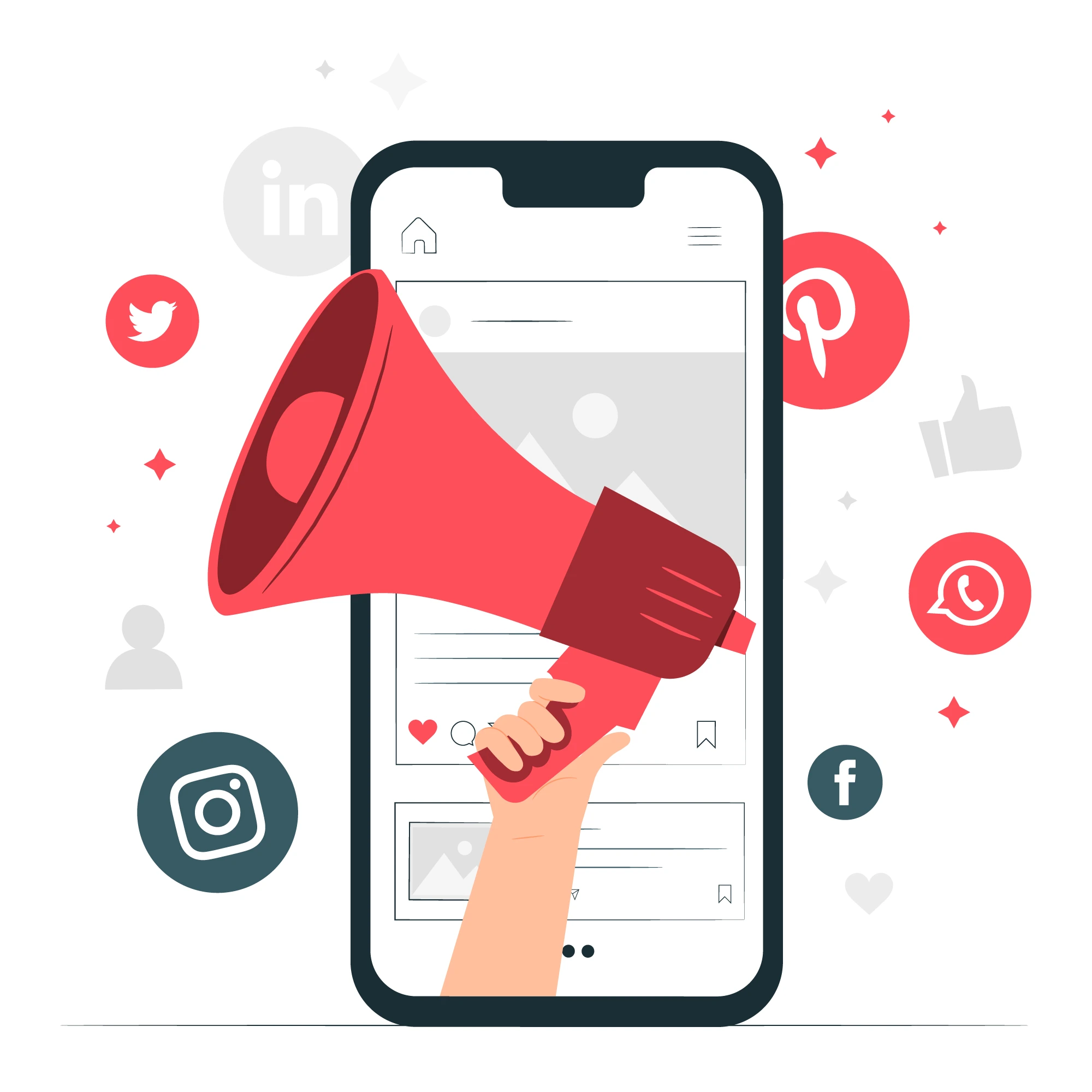
Pay-Per-Click (PPC) advertising is a digital marketing strategy for small businesses where you pay each time someone clicks on your ad. It’s most commonly used on platforms like Google Ads, Bing Ads, Instagram Ads, Facebook Ads, and LinkedIn Ads.
Unlike SEO, which builds traffic gradually, PPC gives you instant visibility—especially for high-intent keywords or product-based searches.
“Stopping advertising to save money is like stopping your watch to save time.”
– Henry Ford
Immediate Visibility with Cost Control
One of the biggest advantages of PPC is that you only pay when someone clicks on your ad. It’s one of the types of online marketing where you can set a daily budget, choose who sees your ads, and control the message.
It’s one of the most reliable types of online marketing for:
- Running time-sensitive promotions
- Competing in highly competitive industries
- Experimenting new offers or landing pages quickly
Quick Stats:
- Google Ads delivers an average ROI of 200% – you get $2 back for every $1 spent (Google Economic Impact Report)
- PPC visitors are 50% more likely to purchase than organic visitors (Unbounce)
Popular Types of PPC Ads
Here are a few formats under this category of digital marketing:
- Search Ads – Text ads at the top of Google results
- Display Ads – Banner ads on websites
- Shopping Ads – Product listings with images/prices
- Video Ads – Ads on YouTube or short-form platforms
- Remarketing Ads – Targeting users who visited your site before
PPC offers one of the fastest ways to get traffic, but it works best when combined with other types of internet marketing like SEO and content marketing for long-term growth.
Social Media Marketing (SMM)
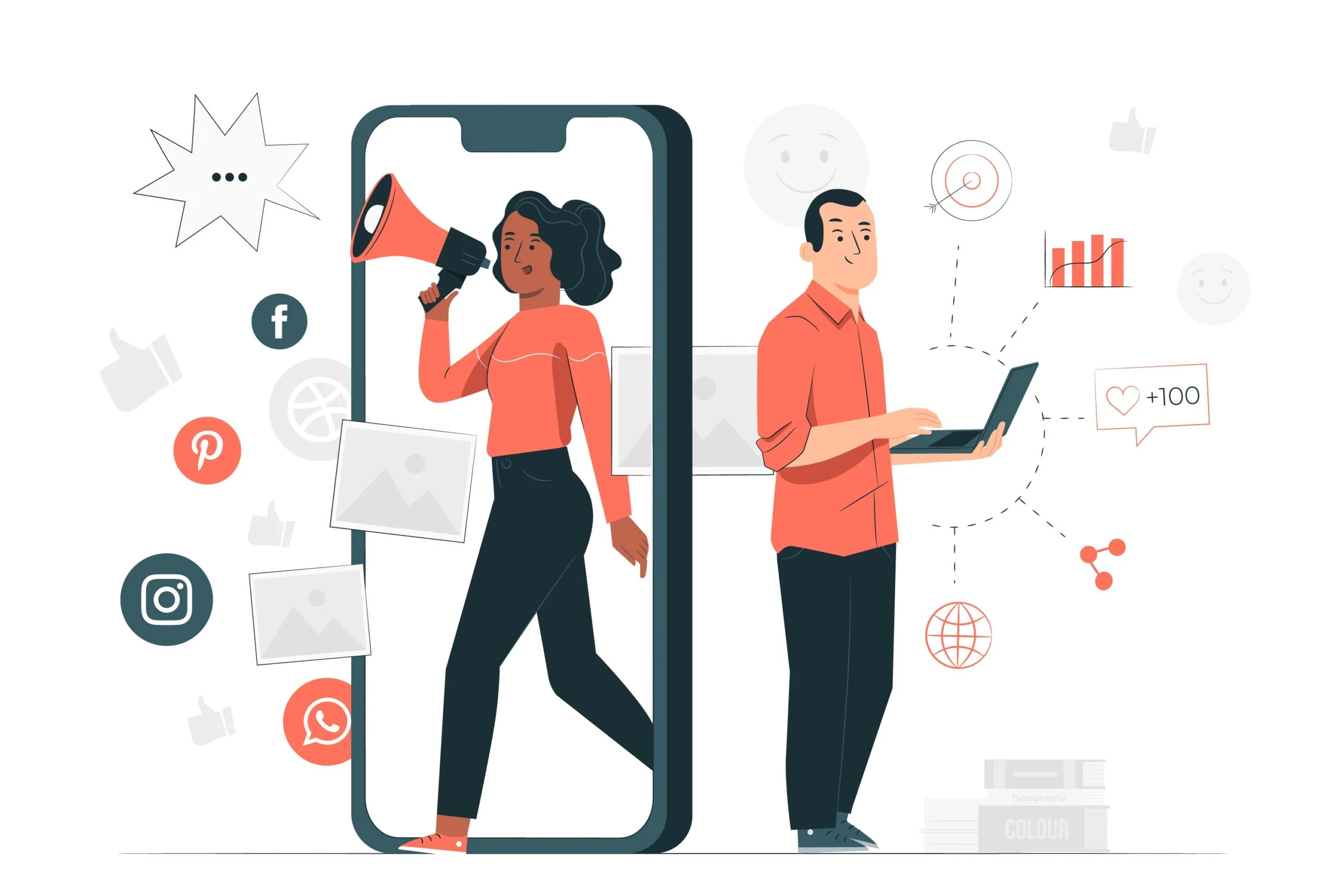
Social Media Marketing is the use of platforms like Facebook, Instagram, LinkedIn, Twitter (X), YouTube, and TikTok to promote your brand, engage with your audience, and drive traffic or sales.
It combines organic content (like posts, reels, and stories) with paid advertising to build awareness and loyalty over time.
“People do not buy goods and services. They buy relations, stories, and magic.”
– Seth Godin
Social media gives you a direct line to your audience, helping you humanize your brand and create a community.
Platforms and Their Strengths
Each platform has its unique strengths, audiences, and content formats. Choosing the right one depends on your goals:
| Platform | Best For | Content Types |
| B2C, local reach | Posts, reels, groups, ads | |
| Visual storytelling | Stories, reels, carousels | |
| B2B networking | Articles, professional content | |
| Twitter (X) | Real-time updates | Short posts, threads |
| YouTube | Long-form video | Tutorials, vlogs, ads |
| TikTok | Gen Z reach, trends | Short viral videos |
Organic vs Paid Social
There are two key forms of digital marketing within SMM:
1. Organic Social Media
- Focuses on building a following through regular posts and engagement
- Great for brand awareness and community building
2. Paid Social Media Ads
- Sponsored posts targeted to specific demographics
- Great for boosting reach, website traffic, and conversions
Quick Stats That Matter
- 77% of businesses use social media to reach customers (Statista)
- Users spend an average of 2.5 hours per day on social platforms (Global WebIndex)
It’s not just about likes—it’s about building relationships that lead to real results.
Want to grow your brand online? Discover effective social media strategies and explore our full range of social media services to boost engagement and drive real results.
Content Marketing
Content marketing is the strategic process of creating and sharing valuable, relevant, and consistent content to attract and engage a target audience—and ultimately drive profitable customer action.
Unlike traditional ads that sell directly, content marketing educates, entertains, or inspires. It builds trust before the pitch.
“Content is fire. Social media is gasoline.”
– Jay Baer
This method supports almost all types of internet marketing, including SEO, email, and social media.
Common Content Formats
You’re likely already consuming content marketing every day—whether you realize it or not. Here are a few common forms:
- Blog Posts – Improve SEO and drive organic traffic
- Videos – Great for tutorials, product demos, or behind-the-scenes content
- Infographics – Visually explain complex data or concepts
- Ebooks/Whitepapers – Lead magnets to capture emails
- Case Studies – Build credibility through real-world proof
- Podcasts – A growing format for storytelling and thought leadership
- Social Media Content – Reels, carousels, and educational posts
To implement effective content strategies, you’ll need the right digital marketing tools for planning, writing, publishing, and measuring performance.
Benefits of Content Marketing
Content marketing is one of the most versatile forms of digital marketing, and here’s why:
- Drives 3x more leads than traditional marketing (Content Marketing Institute)
- Improves search rankings and increases time spent on your website
- Helps nurture leads at every stage of the customer journey
- Builds brand authority and trust
Example in Action
Let’s say you run a fitness business:
- A blog post on “10-minute home workouts” attracts organic traffic
- You turn that into an Instagram carousel for engagement
- The same content becomes a YouTube video + an email tip series
That’s content repurposing — one idea, multiple channels.
Email Marketing
Email marketing is a digital marketing method where you send personalized messages to a group of people through email. These could be newsletters, promotional offers, event invites, onboarding flows, or re-engagement campaigns.
It’s one of the oldest yet most effective types of internet marketing strategy — and it’s not going anywhere.
“Email has an ability many channels don’t: creating valuable, personal touches—at scale.”
– David Newman
Why Email Still Works
Despite the rise of chat apps and social media, email delivers the highest ROI of any marketing channel.
Email by the Numbers:
- For every $1 spent, email marketing returns $36 on average (Litmus)
- 4.3 billion people use email globally (Statista)
- Automated emails generate 320% more revenue than non-automated emails (Campaign Monitor)
Popular Email Marketing Campaigns
- Welcome Series – First impressions and onboarding
- Newsletters – Updates, tips, and announcements
- Product Promotions – Flash sales, discounts, product drops
- Abandoned Cart Reminders – Recover lost sales
- Re-engagement Emails – Win back inactive users
When used right, email marketing feels like a conversation, not a campaign.
Email automation and list segmentation are much easier when you use reliable digital marketing tools that streamline your workflow.
Influencer Marketing
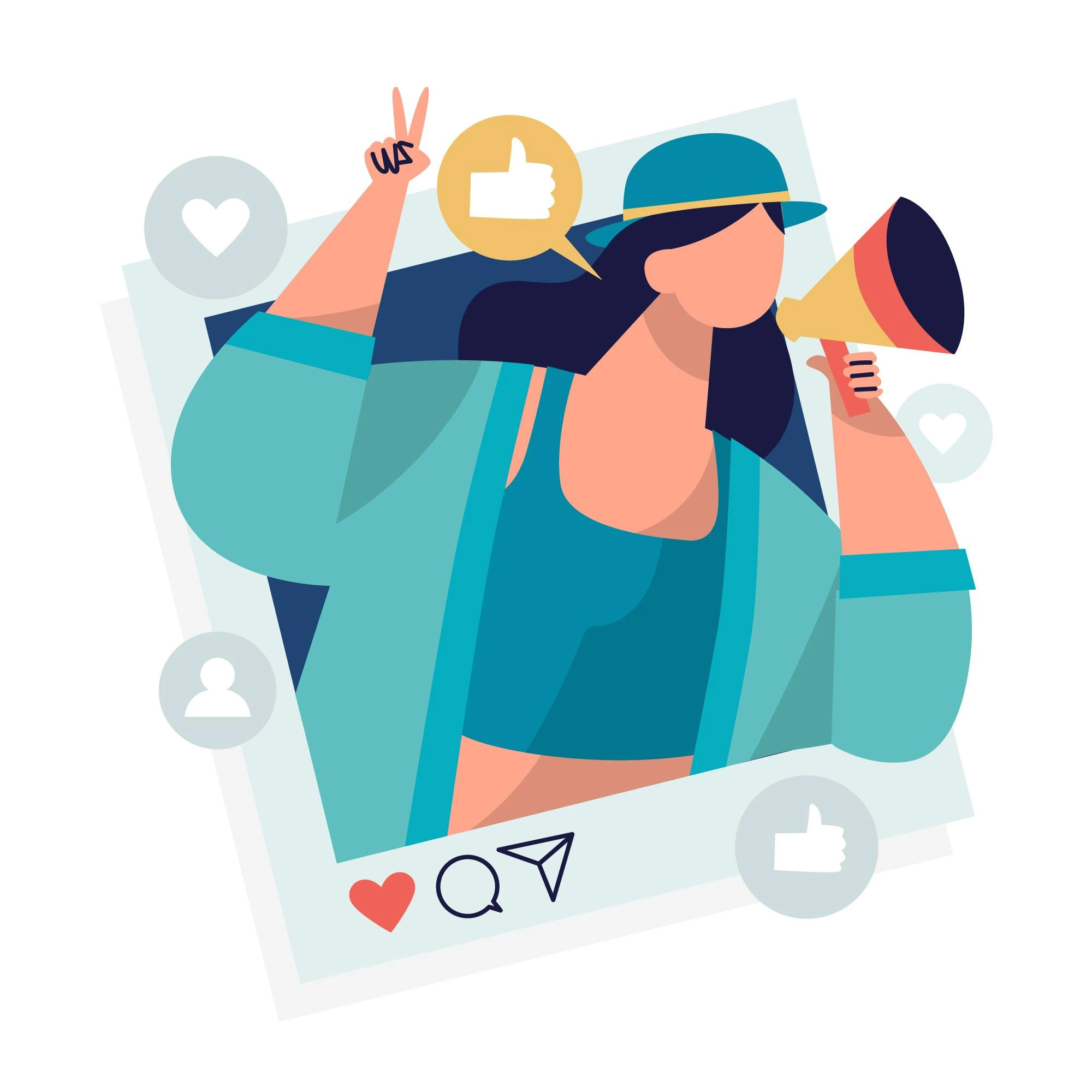
Influencer marketing is a type of digital marketing where brands collaborate with individuals who have a strong online presence—“influencers”—to promote products or services to their followers.
It works because people trust people more than they trust ads.
“People influence people. Nothing influences people more than a recommendation from a trusted friend.”
– Mark Zuckerberg
Types of Influencers
- Nano Influencers (1K–10K followers) – Small but tight-knit communities
- Micro Influencers (10K–100K) – High engagement and niche authority
- Macro Influencers (100K–1M) – Broader reach, more polished content
- Celebrities – Massive visibility but costly
You can run influencer campaigns on Instagram, YouTube, TikTok, LinkedIn, and even podcasts.
Why It Works
- 89% of marketers say ROI from influencer marketing is comparable or better than other channels (Influencer Marketing Hub)
- Influencer content often performs better than branded ads
This form of digital marketing blends storytelling with social proof—making it ideal for product launches, brand awareness, and trust-building.
Affiliate Marketing
Affiliate marketing is a performance-based digital marketing method where businesses reward affiliates (partners) for bringing in traffic or sales through their referral efforts.
Affiliates promote your product through their blogs, websites, YouTube channels, or social media—and get paid per click, lead, or sale.
“Affiliate marketing has made businesses millions and ordinary people millionaires.”
– Bo Bennett
How It Works
- A brand provides a unique referral link to the affiliate
- The affiliate shares it through content or ads
- When a user clicks and completes a goal (e.g., purchase), the affiliate earns a commission
It’s a low-risk, high-reward way to expand your reach—especially for eCommerce and digital products.
Stats That Prove Its Power
- 81% of brands run affiliate programs (Rakuten)
- Affiliate marketing accounts for 16% of all eCommerce sales in the U.S.
- Top affiliates can earn 5 to 6 figures monthly
This form of digital marketing scales fast—without needing a large advertising budget.
Mobile Marketing
Mobile marketing focuses on reaching users through smartphones and tablets. It includes SMS campaigns, app-based notifications, mobile-friendly websites, in-app ads, and even QR code promotions.
Channels & Tools
- SMS & WhatsApp Marketing – Instant reach with high open rates
- Push Notifications – Alerts from mobile apps or browsers
- In-App Advertising – Ads inside mobile games or apps
- Location-Based Ads – Using GPS to target users by location
Why It Works
- 98% of SMS messages are read within 3 minutes
- Mobile ads convert 2.5x more than desktop ads
This digital marketing method makes digital interaction feel more personal and real-time—ideal for promotions, reminders, or flash sales.
Video Marketing
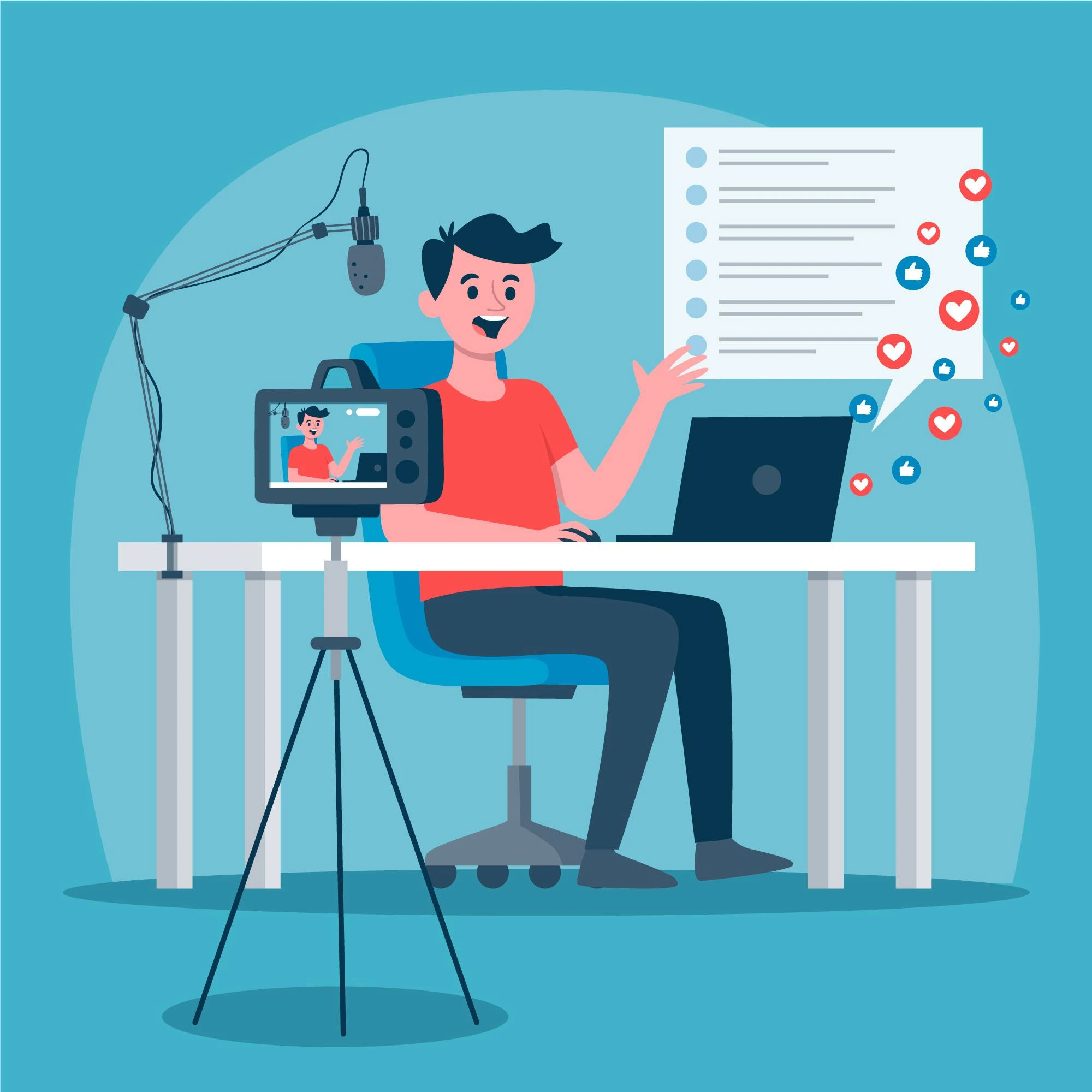
Video marketing uses videos to promote your brand, explain products, share stories, or engage audiences. It can be long-form (YouTube) or short-form (Instagram Reels, TikTok, YouTube Shorts).
It’s one of the most engaging types of internet marketing, especially as attention spans shrink.
Why Video Dominates
- 91% of businesses use video as a marketing tool (Wyzowl)
- Adding video to a landing page can increase conversions by 80%
- People are 2x more likely to share videos than any other type of content
Common Video Types
- Explainers & product demos
- Behind-the-scenes or storytelling
- Tutorials or webinars
- Customer Reviews
- Short-form reels, TikToks, or YouTube Shorts
Video marketing works brilliantly across other types of online marketing like email (embedding videos), social (reels), and even SEO (ranking video content on YouTube or Google).
Voice Search Marketing
Voice search marketing is the process of optimizing your digital content so that it appears in voice-based searches on platforms like Google Assistant, Siri, Alexa, and Cortana.
As more people use smart speakers and voice assistants, this has become a key part of newer forms of digital marketing.
“Hey Siri, how do I improve my website traffic?” — That’s the new Google search.
Why It Matters
Voice queries are usually longer, more conversational, and often local. This means businesses must adapt their SEO and content strategies to fit how people speak, not just type.
Example:
- Typed: “best coffee shop Delhi”
- Voice: “What’s the best coffee shop near me open right now?”
Key Stats
- 71% of consumers prefer voice search over typing (PwC)
- By 2025, half of all internet searches will be voice-based (ComScore)
Emerging digital marketing trends like voice search and AI-powered chatbots are redefining how businesses connect with their audience.
Audio Marketing (Podcasts & Streaming)
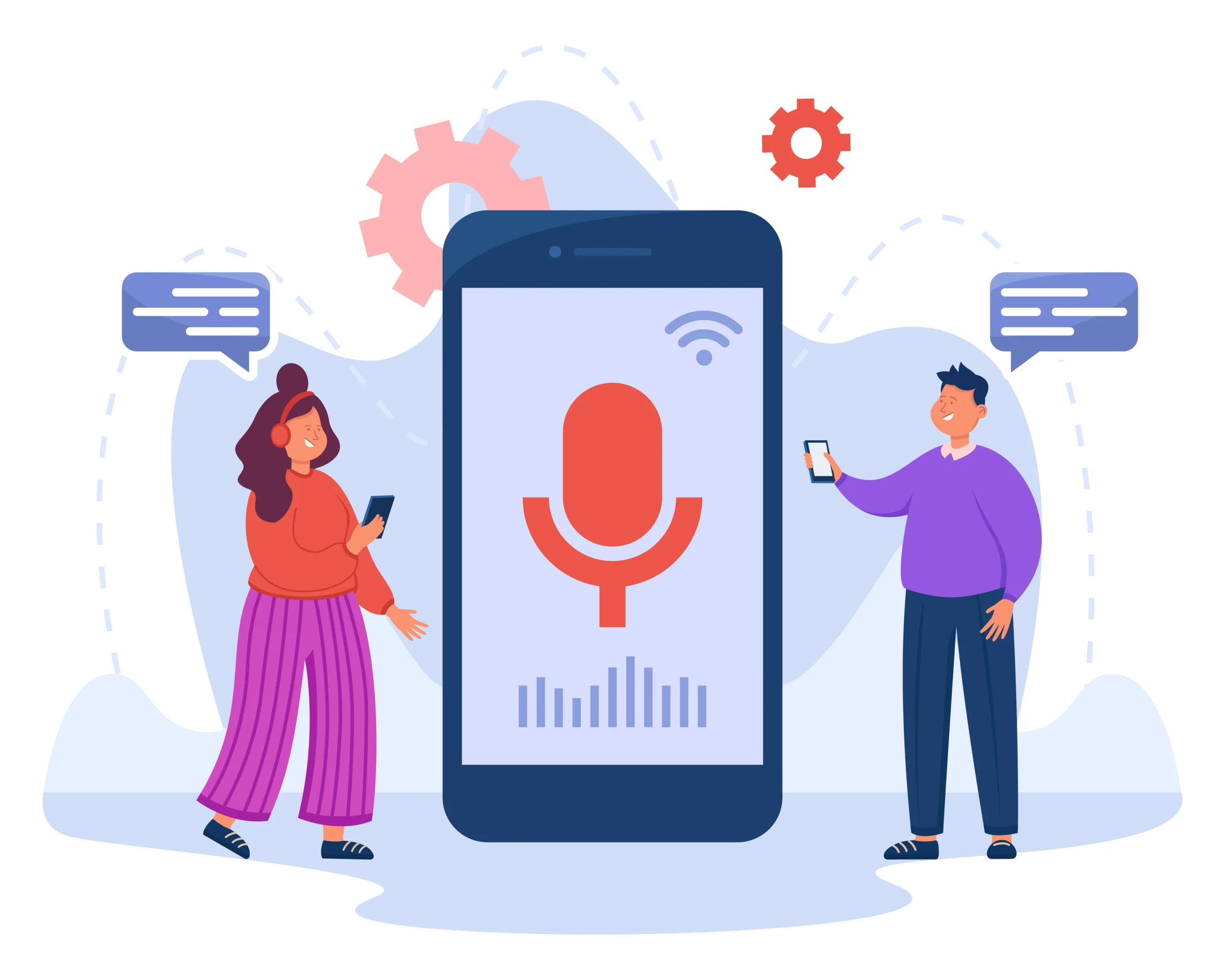
Audio marketing involves creating or advertising through audio content — including podcasts, audio ads on Spotify, and smart speaker content.
As screen fatigue grows, audio offers a hands-free, passive way to consume content—making it an effective digital marketing method.
“Podcasting is the Netflix of spoken word.”
– Tom Webster, Edison Research
Why It Works
- Builds a personal, intimate connection with listeners
- Allows deep-dive storytelling and thought leadership
- Often consumed during multitasking: driving, cooking, working out
Stats That Speak Volumes
- 464 million podcast listeners worldwide as of 2023 (Statista)
- Podcast ad revenue crossed $2 billion in 2023
- Listeners are 60% more likely to buy from brands they hear in podcasts
This category of digital marketing is especially effective for niche audiences and authority-building.
Chatbot Marketing
Chatbot marketing uses AI-driven bots (like on WhatsApp, websites, or Facebook Messenger) to interact with visitors, answer questions, guide them, or even help them make purchases.
It’s like having a virtual assistant for your business that works 24/7.
What Chatbots Can Do:
- Instantly respond to FAQs
- Collect leads and qualify visitors
- Send product suggestions or reminders
- Book appointments or collect feedback
Why Chatbots Are Booming
- Businesses using chatbots saw a 67% increase in sales on average (Intercom)
- 80% of routine customer queries can be handled by bots (Gartner)
This form of digital marketing enhances user experience while reducing human workload—especially valuable for eCommerce, SaaS, and service-based businesses.
Many modern tools, like chatbots and predictive emails, are powered by AI in marketing, helping businesses automate and personalize like never before.
Online PR & Reputation Management
Online PR [Public Relation] focuses on building a positive brand image across digital media, blogs, review sites, and news outlets. It involves getting mentioned in articles, press releases, or influencer content to gain credibility.
Reputation management helps you monitor and respond to customer reviews and online feedback.
Includes:
- Earning backlinks from media
- Responding to reviews (Google, Yelp)
- Managing press coverage
It’s a key type of digital marketing for building trust and authority.
Which Type of Digital Marketing Is Right for You?
Choosing the right strategy depends on:
- Your business type (B2B or B2C)
- Budget (SEO and content = long-term, PPC = fast results)
- Target audience (Gen Z? TikTok. Professionals? LinkedIn.)
Small business? Start with SEO, social media, and email
eCommerce brand? Combine PPC, video, and influencer marketing
SaaS or B2B? Use content, email nurturing, and LinkedIn
Mixing a few methods often gives the best results.
Conclusion
There are many types of digital marketing—from SEO and social media to podcasts, chatbots, and PR. Each method has its own power, depending on your goals.
Start small. Experiment. Measure. Then scale.
In digital marketing, the only constant is change—so keep learning and adapting.
Now that you know your options, you’re better equipped to build a digital marketing plan that actually works.
Whether you’re a startup or an established brand, investing in digital marketing for business can unlock better visibility, engagement, and growth.
FAQs
Which form of digital marketing is best for beginners?
For beginners, starting with content marketing, SEO, and social media marketing is ideal. These methods are cost-effective, easy to learn, and help build long-term visibility.
How do the categories of digital marketing differ?
Categories of digital marketing refer to different approaches like organic (e.g., SEO, content) vs. paid (e.g., PPC, influencer marketing), or B2B vs. B2C strategies. Choosing the right category depends on your target audience and budget.
Is email marketing still effective in 2025?
Yes! Email marketing remains one of the highest ROI types of online marketing. With automation and personalization, it helps nurture leads and drive conversions consistently.
Can I combine multiple types of internet marketing?
Absolutely. Most successful digital strategies combine several methods—like using content to drive SEO, then promoting it on social media and nurturing leads through email marketing.
How do I choose the right digital marketing method?
It depends on your goals, budget, audience, and business type (B2B vs B2C). A mix of content, social media, and email marketing works well for most small to mid-sized businesses
Do I need all types of digital marketing?
Not necessarily. It’s better to focus on 2–4 strategies that align with your goals and scale up gradually based on performance and ROI.

